School Behind A Screen
Surviving the Pandemic when Immunocompromised
Sophia Whalley’s desk is set up for a day of online learning.
September 11, 2020
Elizabeth Green completes her morning routine in the same room she’ll be attending school in. She says hello to her cats and sits down at her desk, praying that she won’t run into any trouble with her internet connection. Green officially logs into school at 7:20 a.m.
After finishing her three Google Meet classes, she works independently for the rest of the day. Though there is no specific way she has to complete these self-guided courses, Green has split them into blocks to resemble a regular school schedule.
“I just do them at a certain time to give myself a sense of normalcy,” Green said.
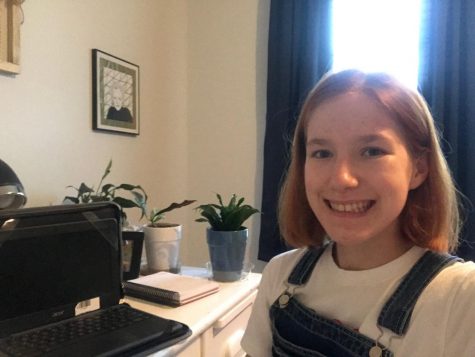
Green, a sophomore, was diagnosed with Hashimoto’s disease (an autoimmune disease in which the body attacks the thyroid gland) just a month before the pandemic began. Because of this, she has opted to go all online this semester. Immunocompromised individuals like Green are at a greater risk of developing severe complications from COVID-19. While many people counted down the days until quarantine would finish, Green’s and other families looked toward a prolonged period of isolation.
“It’s difficult to see people go and have fun but have to stay in and miss out on opportunities,” Green said. “We just have to be extra careful. It’s hard because you want to be friendly and see people and not seem like people who run away from things, but we also need to be safe. I don’t think [people] understand that.”
A typical work or school environment doesn’t guarantee the safety high-risk lives depend upon. For this reason, senior Sophia Whalley, also dealing with a weakened immune system, is taking online classes.
“My family wasn’t comfortable with me or my brother going back into a classroom where social distancing and masks might not be enforced,” Whalley said. “Since my mom is a microbiologist and sort of does this research for a living, she’s made sure our family is very cautious and careful.”
On a regular basis, Whalley does her best to keep herself from getting sick. She always kept hand sanitizer and cold medicine, ate a diet full of vitamin C, and kept her distance from others when they were sick. However, while the precautions she took became second nature before, they now have to be at the forefront of her mind when leaving home.
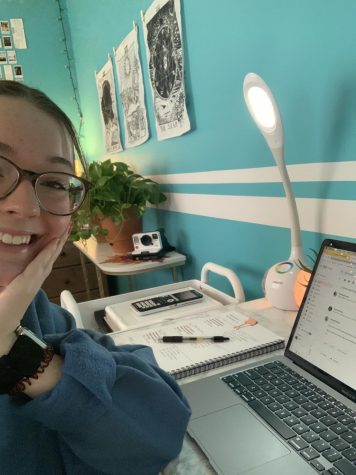
“I’ve never had to be so cautious about what I touch or where I go,” Whalley said. “Going to the store or park or just out in general used to be my escape, my little distresser. Now, while I still like to go out, it tends to add more stress onto my life. Last year was probably the most social I’ve ever been so going from that to a very introverted person has been a hard transition.”
Virtual learning utilizes a combination of video calls and self-guided courses through LAUNCH, a Missouri based program that creates online classes for public schools. Green, for example, takes three classes with Wentzville teachers and completes the rest on her own. Both Whalley and Green – apart from technical difficulties – have done well with this structure, as long as they are able to stay organized and keep on track. However, some aspects of school simply cannot be replicated from behind a screen.
“One thing I do really miss about in-person school is being social. I could see my friends, I could ask for help on assignments, I could talk to whoever,” Whalley said. “At home, if I want to talk to someone, I have to reach out to them and it sort of feels unnatural to me.”
Immunocompromised students are no strangers to adaptation, and with the help of the school have been able to adjust. Still, it can be extremely frustrating, especially when it seems like others are ignorant to their situation. Green has struggled to witness a growing denial of the pandemic’s severity while dealing with its impact herself.
“Sometimes it’s like, are we doing the right thing or are we being stupid? But then you see things in the news about people who have suffered and had all these life-changing things happen, like their lungs being messed up for years,” Green said. “It’s not a joke, it’s not a political statement; it’s science and science is fact, not fiction.”
Green and Whalley both stress the importance of taking the pandemic seriously- if not for you, then for somebody else.
“From my perspective, I wish people would understand that the pandemic is real, that people are legitimately dying from it,” Whalley said. “I wish people would understand that those CDC guidelines actually do mean something and that you could save someone’s life just by wearing a mask.”
Visit the CDC website to learn how to protect yourself and others from the pandemic here.



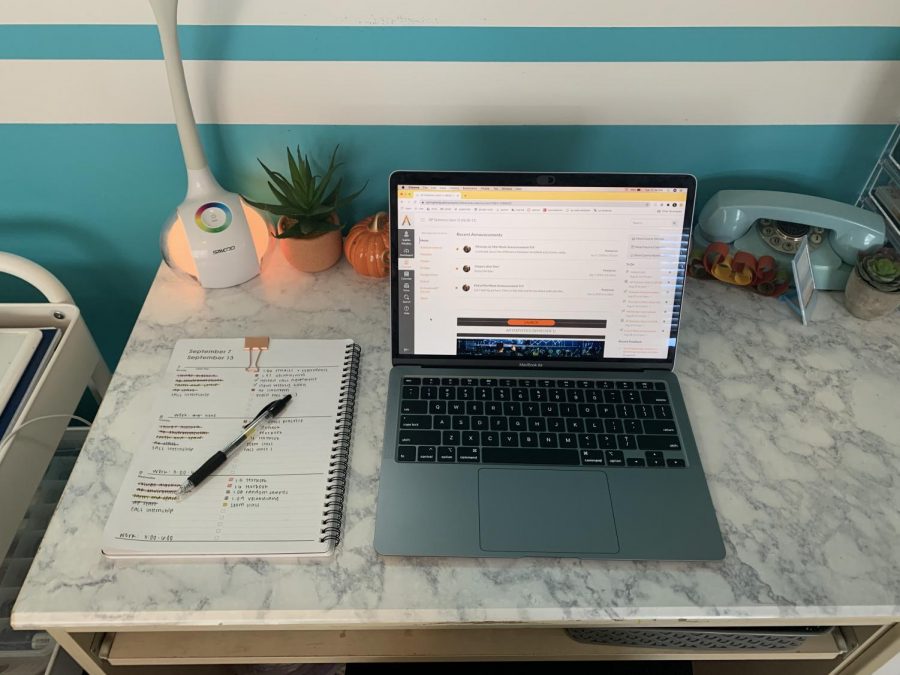



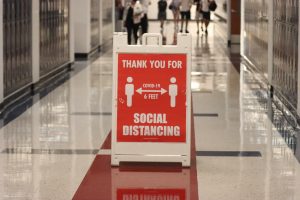


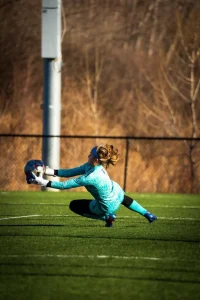


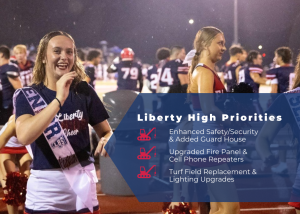

Elizabeth Hamby | Sep 11, 2020 at 12:23 pm
Amazing story Lizzie! You really captured them in this piece!